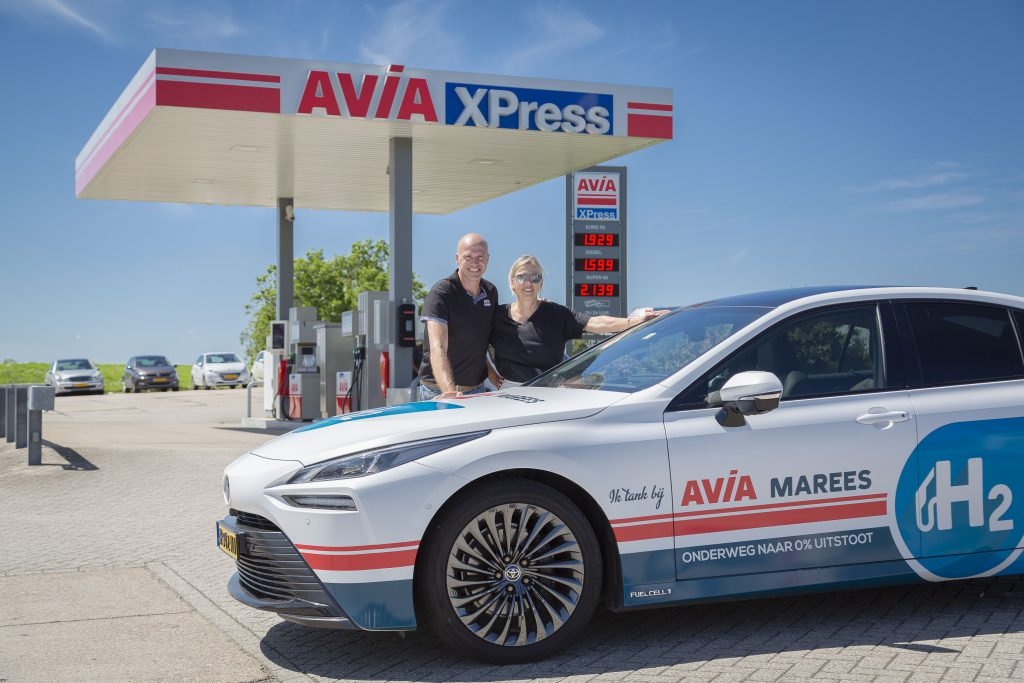AVIA Marees is a North Holland family business that has been involved in mobility for over a century – and has been actively committed to sustainability in recent years. In the series of partner portraits around Fieldlab Hydrogen in Agri This time we speak with Marion Marees about the role of hydrogen within their organization, their participation in the project, and the opportunities and challenges they see in the application of hydrogen in mobility and agriculture.

1. Can you briefly introduce AVIA Marees?
“AVIA Marees is a North Holland family business with over 100 years of experience in mobility. Since 2004 we have been operating under the international AVIA flag and are visible at approximately 60 petrol stations in North Holland and Friesland. In addition to the supply of traditional fuels and lubricants, we are strongly committed to sustainable mobility.
“In 2022 we opened the first hydrogen filling station in the Kop van Noord-Holland (see news item). In addition, we are constantly expanding our range of sustainable energy solutions. For example, with AVIA VOLT we offer smart charging solutions via public charging plazas and to business customers. Under the name Ecosave we supply renewable fuels, such as HVO blends, directly from our own depot in Kolhorn. We also have six branches in North Holland with WashKing – an innovative and environmentally friendly car wash concept – with plans for further expansion.
“With a strong focus on innovation and customer focus, we are a trusted partner in the energy transition in our region.”
2. What prompted AVIA Marees to join Fieldlab Hydrogen in Agri?
“The direct reason was a possible collaboration with Hygro, in which we would operate hydrogen filling stations and purchase and sell hydrogen. This hydrogen could be supplied to our hydrogen stations and to business customers, particularly in the agricultural sector. We see this project as an opportunity to gain experience and further expand our network in the sector.”
3. What role do you see for hydrogen in the long term in mobility and/or the agricultural sector?
“I find that difficult to predict. Four years ago I was more positive than I am now. The production costs of hydrogen remain high, and transport and storage – especially in gas form – are also expensive. Hydrogen tractors are also not yet on the market. At the same time, the electrification of vehicles is happening at a rapid pace, with constant new developments in battery technology. That puts pressure on the position of hydrogen, especially in mobility.”

4. What is the biggest challenge for you?
“The biggest challenge is the lack of buyers for hydrogen. There is hardly any interest in the transport sector at the moment. In addition, the solution that Hygro has in mind – namely affordable hydrogen stations with high-pressure cylinders – is still pending. We saw an opportunity there to accelerate the step towards larger-scale application of hydrogen.”
5. What has been your biggest success or progress within this project so far?
“For us, the biggest gain so far is in the knowledge we gain and the network we build. We also see interesting opportunities emerging with alternatives such as biomethanol. In addition, we hope to gain valuable insights through a survey that will be launched soon. This should provide more clarity about the interest in renewable fuels and the energy transition in a broader sense.”